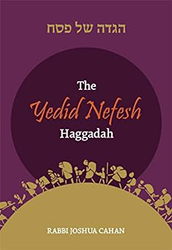The cover of Kim Kushner’s The Modern Table: Kosher Recipes for Everyday Gatherings reveals a feeling that is at the center of the entire cookbook: camaraderie. Its photograph displays plates and trays of food elegantly placed on the table, where guests can pick and choose what they want to eat and fill their plates. People can taste each other’s food, having a bit of this, a little bit of that. In other words, Kushner intends for the recipes in her book to become meals that bring people together.
Kushner remarks early on that she loves the cooking process. This is evident in the stunning images that accompany nearly every page of the book. Readers can see the specks of each ingredient that make up a food item, as when Kushner details instructions for cooking Leek, Lentil, and Chickpea Tagine. On the page next to the recipe, there is a vivid image of a red bowl that depicts the layeredness of the dish: the pine-nuts and chickpeas, the feta cheese, the brown lentils, the chopped parsley and zucchini chunks. Although it’s one meal, the individual components necessarily stand out. Adeena Sussman says it best in her foreword: “Clear-eyed, easy to follow recipe writing and drop-dead visual presentation.”
Beyond its photographs, this cookbook succeeds because of the conversational sections that Kushner includes at the beginning and end of recipes and at the beginning of chapters. She adds tidbits of practical information, like advice on how to store leftovers. She speaks to readers directly, addressing them as one might a friend. “If you’ve ever wondered what to do with all the leftovers in the refrigerator,” Kushner writes, “this section is for you!” Her enthusiasm imparts a sense of comfort, assuring readers that no question about the kitchen is a silly one.
The recipes, meanwhile, are simplistic with a flair. Each can be prepared in a manageable time frame, despite its appearance of having required hours of careful planning. The food is stunning and sophisticated, provides room for creative adaptations, and gives the chef the chance to convoke loved ones. With each of its recipes careful to separate meat and dairy, and to leave out ingredients like pork and shrimp, The Modern Table should be a staple in every kosher kitchen.
Madison Jackson lives in Pittsburgh, PA and is the Director of Jewish Student Life at Carnegie Mellon University. She received her Master of Fine Arts degree in Creative Nonfiction Writing from Chatham University, and her Bachelor of Arts degree in Judaic Studies and English from Binghamton University.




